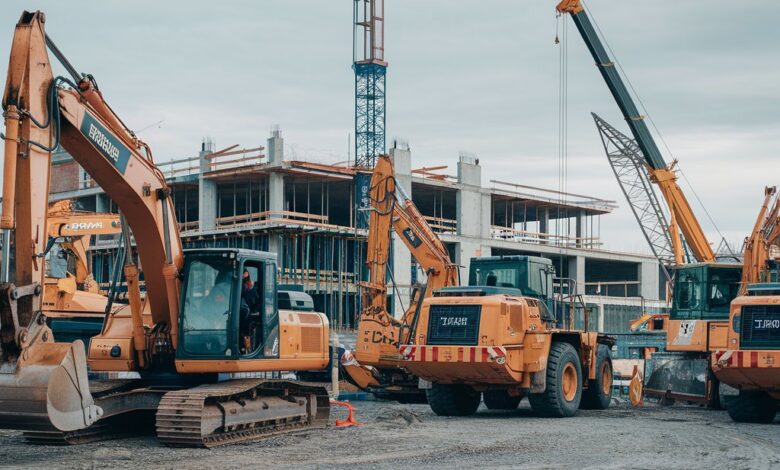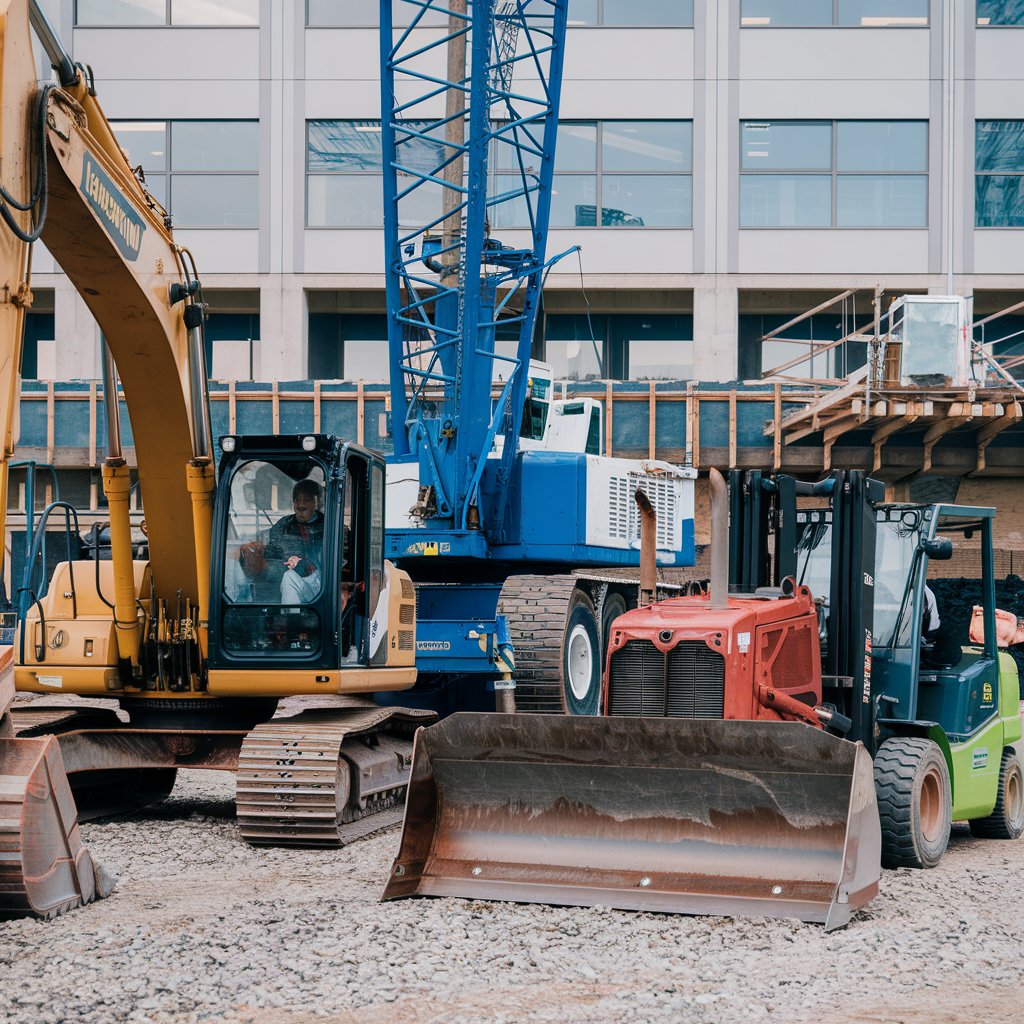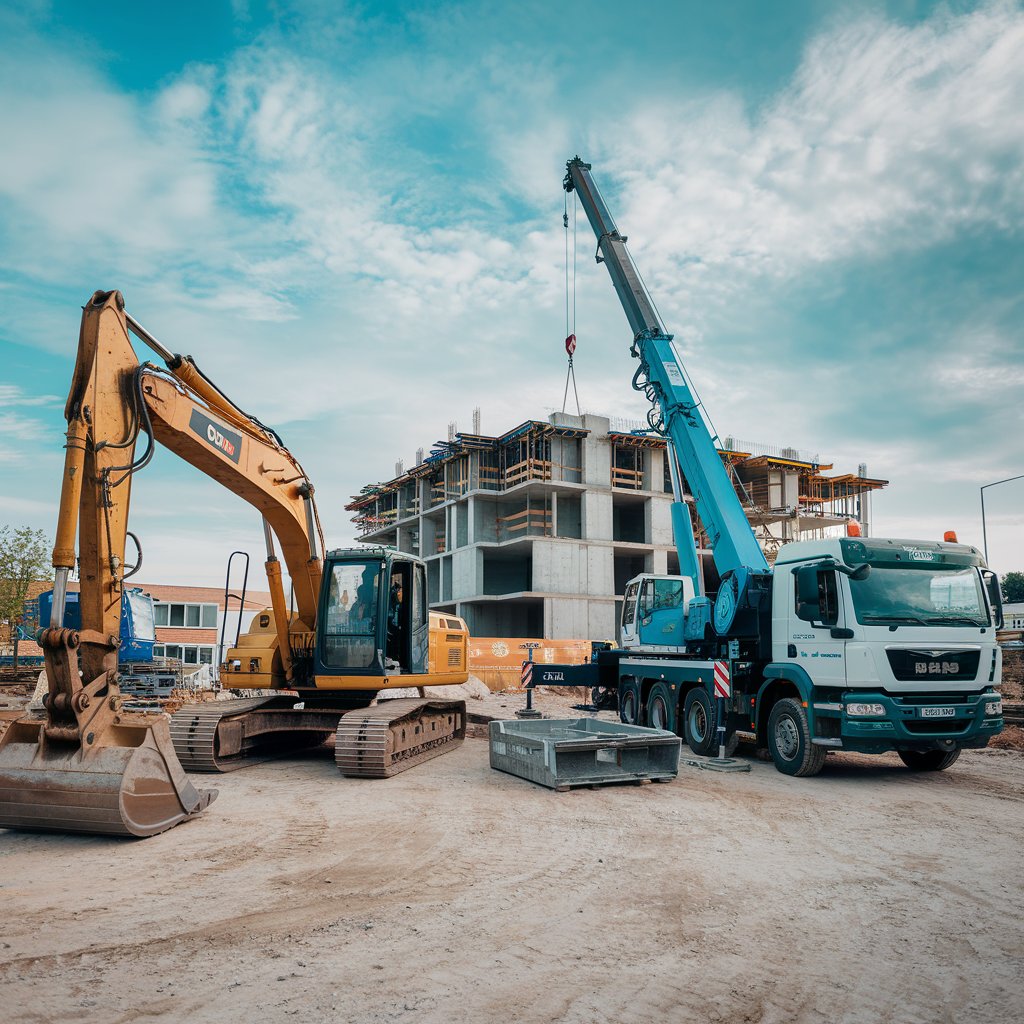What Is Mobile Equipment Under a Business Auto Policy?

Understanding mobile equipment under a business auto policy is important for businesses that rely on vehicles for daily operations. Many people get confused about whether their mobile equipment or heavy vehicles are covered by a business auto policy. Knowing the difference between “mobile equipment” and “autos” can help you make the right insurance decisions.
Mobile equipment is designed mainly for use off public roads, like construction machines or vehicles with special tools. On the other hand, autos are vehicles made for public road travel, like cars, trucks, and vans. Your business needs to know which policy covers what to ensure proper protection. Let’s explore this topic in simple terms!
What Does Mobile Equipment Under a Business Auto Policy Mean?
When businesses use vehicles or heavy equipment, understanding mobile equipment under a business auto policy is crucial. Mobile equipment is generally used off public roads, such as construction machinery or specialized vehicles with attached tools. Meanwhile, autos are designed for regular road use, like cars, trucks, and vans.
The distinction between mobile equipment and autos is important for insurance purposes. A business auto policy usually covers vehicles meant for public roads. On the other hand, mobile equipment often falls under a commercial general liability policy. This separation ensures that each type of vehicle is insured appropriately for its intended use.
Many businesses overlook the specific coverage needs for their vehicles. For instance, a steamroller used in road construction wouldn’t typically be covered by an auto policy. Taking the time to review your policies ensures that both your autos and mobile equipment have proper coverage.
How to Identify Mobile Equipment vs. Autos
Mobile equipment and autos may seem similar, but they serve different purposes. Mobile equipment is designed mainly for off-road tasks, like bulldozers, graders, or cranes. Autos are meant for traveling on public roads and include passenger cars, delivery vans, or commercial trucks.
A simple way to identify mobile equipment is to look at its design and primary use. Equipment like a cherry picker or a welding truck might seem roadworthy but is classified as mobile equipment due to its special functions. Autos, however, focus on transportation rather than functionality.
Businesses often ask how to classify vehicles with permanent attachments like compressors or pumps. These are considered mobile equipment if their primary purpose is off-road use. Reviewing this distinction with your insurance agent is a smart way to avoid coverage gaps.
Why the Design of a Vehicle Matters for Insurance

The design of a vehicle plays a key role in determining whether it is mobile equipment or an auto. Vehicles built to operate on public roads, like sedans or SUVs, are classified as autos. Meanwhile, machinery designed for specific tasks, such as excavators or forklifts, falls under mobile equipment.
Insurance companies look at a vehicle’s intended purpose, not just where it can travel. For example, a truck with a generator permanently attached might seem like an auto. However, because the truck’s function is specialized, it is treated as mobile equipment.
Misclassifying your vehicles can lead to costly mistakes. Ensuring the right policy covers each type of vehicle protects your business in case of an accident or damage. Speak to a commercial insurance expert to ensure your vehicles are properly categorized and insured.
Are Construction Vehicles Covered by Business Auto Policies?
Construction vehicles are often considered mobile equipment rather than autos. These include heavy machines like bulldozers, backhoes, and steamrollers. Since they are designed for use on construction sites and not public roads, they are usually not covered under a business auto policy.
Business auto policies focus on vehicles meant for road travel. On the other hand, mobile equipment is covered under general liability policies. This separation ensures that specialized machinery is insured for the tasks it performs.
Companies using construction vehicles must ensure their policies match their needs. Reviewing your insurance coverage with a professional helps you confirm whether your mobile equipment is appropriately covered. A little preparation can save your business from unexpected expenses.
Understanding Policies for Vehicles with Attached Equipment

Vehicles with attached equipment often fall into a gray area for insurance coverage. Examples include trucks with mounted generators, cranes, or welders. These vehicles might look like autos but are typically classified as mobile equipment under certain conditions.
The key factor is whether the attached equipment changes the vehicle’s primary purpose. A truck that primarily transports goods is considered an auto. But if its main function is to operate equipment, it might be treated as mobile equipment.
Important Points to Consider:
- Primary Purpose: Does the vehicle’s design focus on transport or functionality?
- Permanent Attachments: Is the equipment permanently attached to the vehicle?
- Insurance Review: Have you confirmed coverage with your agent?
Businesses should ensure these vehicles have the correct type of coverage. Reviewing your policies regularly helps avoid surprises when filing a claim.
Conclusion
Understanding mobile equipment under a business auto policy can feel tricky, but it doesn’t have to be. The key is knowing whether your vehicle is designed for public roads or for specialized tasks off-road. By learning the difference, you can make sure your business vehicles are insured the right way. This can save you from expensive mix-ups from now on.
Take time to check your insurance policies with a professional. They can help you see what’s covered and what’s not. Whether it’s a delivery van or a crane, every vehicle plays an important role in your business. Protecting them with the right policy is an important step to keep your business running smoothly.
FAQs
A: Mobile equipment includes vehicles designed for off-road use, like bulldozers or cranes, and is usually not covered by a business auto policy.
A: Autos are vehicles made for public road travel, like cars and trucks, while mobile equipment is used mainly off-road for specific tasks.
A: No, construction vehicles like steamrollers and graders are considered mobile equipment and need a different type of coverage.
A: Mobile equipment is usually covered under a commercial general liability policy, not a business auto policy.
A: The design determines if it’s classified as an auto or mobile equipment, which affects the type of insurance it needs.




